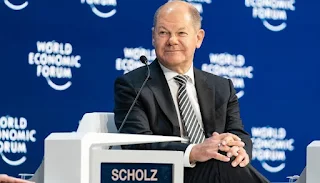
Chinese President Xi Jinping officially received the credentials of the Taliban ambassador to Beijing
President Xi is the first head of state to officially
accredit a Taliban ambassador during a special ceremony, and last year, Taliban
Prime Minister Hassan Akhund received the newly appointed Chinese ambassador to
Afghanistan.
No country in the world has officially recognized the
Taliban as the government of Afghanistan yet, but ambassadors appointed by the
Taliban are actively working in many Asian capitals.
 |
| Taliban Ambassador to Chaina, Bilal Karimi |
The Taliban movement has been criticized by the
international community due to the severe restrictions it imposes on women's
rights.
A Brussels-based research center said on Tuesday that
countries in the region need to deal with Afghanistan regarding security and
economic issues and urged Western powers to support such efforts or at least
refrain from obstructing them.
China has maintained good relations with the Taliban since
its return to power in August 2021, and Beijing is considered one of Kabul's
largest trading partners.











































































